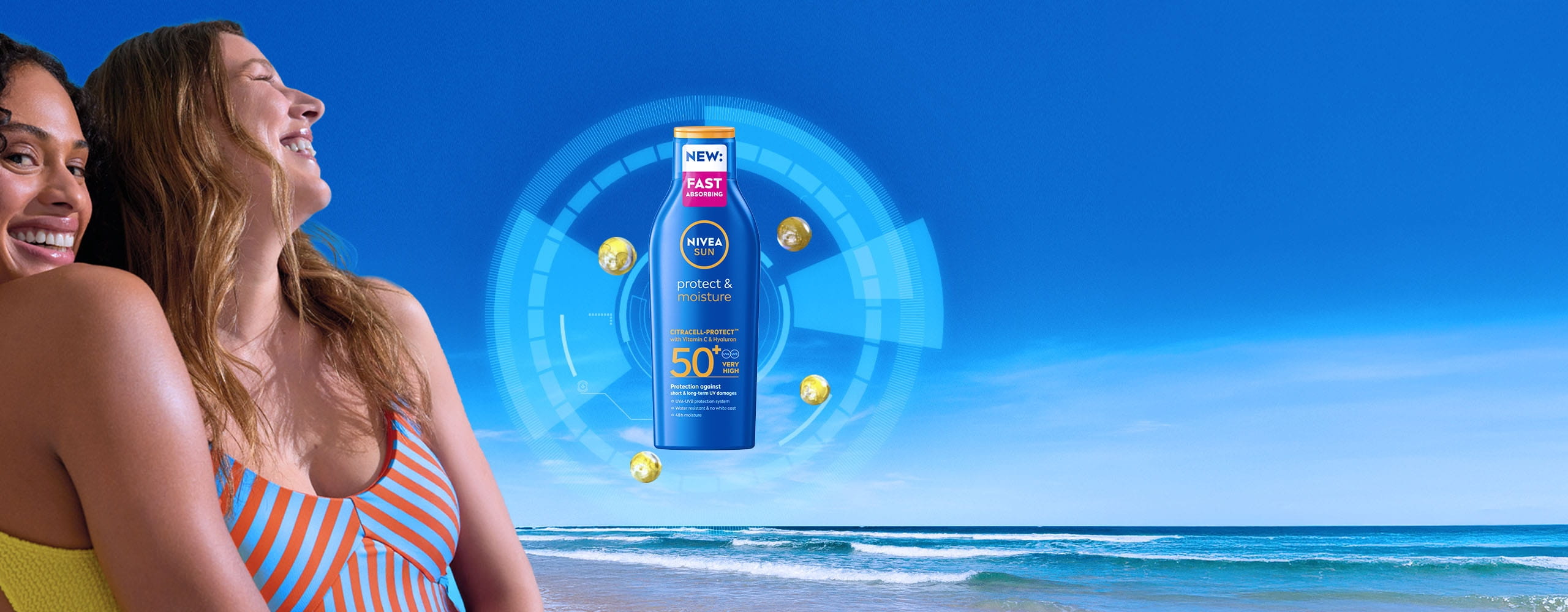Profitez du soleil avec NIVEA Sun !
Lorsqu'il s'agit du soleil, la plupart d'entre nous pensent immédiatement à la chaleur, à la mer, au plaisir et à l'été. Mais le soleil a aussi de nombreuses tâches importantes : il permet la vie sur Terre, fait pousser la nourriture et stimule notre corps à produire de la vitamine D. L'énergie du soleil nous atteint sous forme de rayonnements qui ont des effets à la fois positifs et négatifs sur notre peau. La lumière du soleil régule notre sommeil, favorise le bien-être, stimule le métabolisme et la circulation et améliore fondamentalement notre état de santé. Cependant, le soleil peut également être nocif pour notre corps. Toute personne qui est exposée à trop de rayons UV pendant une courte période peut souffrir d'un coup de soleil. La peau est douloureuse et démange, est chaude, tiraille et peut même peler au bout d'un certain temps. Dans les cas de coups de soleil graves, des cloques finissent même par apparaître. À long terme, un rayonnement UV excessif peut également favoriser l'apparition de maladies graves telles que le cancer de la peau. Vous devez donc vous protéger du soleil. Cela fonctionne si vous restez à l'ombre, portez des vêtements longs ou appliquez une protection solaire suffisante.
De quel facteur de protection solaire ai-je besoin ?
Le choix des produits de protection solaire est souvent déroutant. Il y a une raison à cela : chaque peau est différente et a donc besoin d'une protection solaire différente. Le facteur de protection solaire qui vous convient le mieux dépend du temps d'auto-protection de la peau. C'est le moment où la peau peut être exposée au soleil sans avoir de coup de soleil. Selon votre type de peau et la période de l'année, cela représente environ 5 à 30 minutes. Pour les enfants, vous devez utiliser au moins un indice de protection solaire de 30 (SPF 30), mieux encore de 50+, comme par exemple celui qui est présent dans le Spray Solaire de soin de NIVEA avec FPS 50+.
Vous recherchez un produit très particulier ? Utilisez ensuite la fonction de filtrage pour trouver exactement le produit que vous recherchiez dans notre vaste gamme. Mais qui sait, peut-être trouverez-vous quelque chose de nouveau.
Coup de soleil, que faire maintenant ?
Cependant, si vous avez pris trop de soleil, vous devez immédiatement aller à l'ombre, vous rafraîchir et boire beaucoup, car le corps perd beaucoup de liquide en chauffant. En cas de légères rougeurs de la peau, il vaut mieux la rafraîchir avec un produit After Sun de NIVEA. Les produits hydratants contiennent des actifs naturels comme Aloe Vera, apaisent la peau et l’aident à se régénérer.



